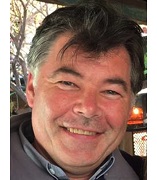
Stephen Matthews, PhD
Professor, Department of Sociology and Criminology, The Pennsylvania State University
Related Sites:
About
Stephen Matthews is Professor of Sociology, Anthropology and Demography (Courtesy Geography) and the Director of the Graduate Program in Demography at The Pennsylvania State University. Dr. Matthews is also currently Co-Editor of the journal Demography (2016-2019). His research interests focus on the connections between people and places. He has a long standing interest in spatial demography and the use of GIS and spatial analysis to study population health and health inequality in community contexts. More specifically, he is interested in the distribution of resources, risks, and opportunities and how accessibility and utilization of these resources, risks, and opportunities impact individual health and wellbeing. As a transdiciplinary scholar Dr. Matthews has published in several fields — demography, sociology epidemiology, public health, geography — on topics including adolescent risk taking behaviors, physical activity, diet and obesity, residential segregation, neighborhood change, access to health care, health care distrust, cancer screening, infant mortality, mortality, alcohol outlets, crime, and religious landscapes. A focus on race/ethnicity and income inequalities cross-cut all of his major research projects. An important part of his work is an interest in conceptual and methodological issues associated with how neighborhoods are defined and their attributes are measured, and the relevance of these definitions and measures to individual behavior and health outcomes. In regards to the latter Dr. Matthews has developed and used methods to track individual movements across space (i.e., contexts) to try to get a better handle on actual contextual exposures during the course of daily activities (rather than solely relying on residential tracts and other convenient units of analysis). To that end, he has also used new methodological approach based on the integration of GIS and ethnography (geoethnography) and in his work with physical activity researchers utilize global positioning system (GPS) units and activity logs.